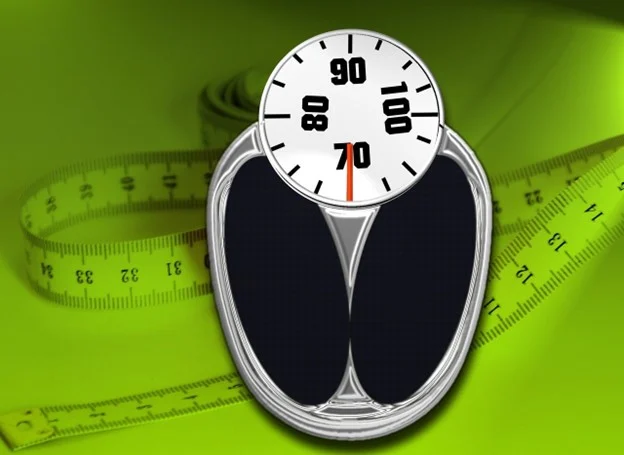Do you need to lose weight?
It’s a personal question that only you can answer, after some careful consideration. The first and foremost reason for losing weight should always be for your health and overall wellbeing. It should also be accompanied by the question “Do I want to lose weight?”. If you are at a point that you know you need to lose weight, there also has to be the motivation and desire to commit to doing it.
Any successful weight loss plan or program is going to include some lifestyle changes – your diet, physical activity level and rest will most likely require some modification on your part. Depending on where you are at in terms of your weight issues, you may also want to consider the advantages that medically prescribed semaglutide can give you in jump starting the weight loss process. Riize weight loss offers semaglutide (same ingredient as Ozempic®) through a secure, licensed telemedicine platform in both injectable and dissolving oral thin strips.
The risks of excess weight
Excess weight can increase the risk of a number of serious health conditions. These include hypertension (high blood pressure), increased cholesterol, increased blood sugar levels and poor cardiovascular health. Left unchecked, development of such conditions can lead to stroke, diabetes and heart attacks. Additionally, excess weight can accelerate aging in the brain, producing hormones that lead to inflammation and insulin resistance, known factors in the development of dementia. It is especially important to maintain a healthy weight as you age.
What is excess weight?
The answer to that question can vary for each individual. Age, gender, body type, even culture and society can affect what could be defined as excess weight. There is no one-size-fits all. The more important consideration is how you feel about your weight as you go about your daily life. Is it hindering you in any way, either physically, mentally or emotionally?
Personal considerations aside, a more objective view of excess weight is how it is often defined clinically or medically. One of the most common “tools” used in making that determination is the BMI, or Body Mass Index. As it is still a prevalent measure in classifying what healthy and unhealthy weights are, it’s worth a closer look at how it was developed, used and is being re-assessed in some cases.
What is Body Mass Index?
Body Mass Index, or BMI, is a measure of weight, proportional to height. The concept was developed in the 1830’s by Danish mathematician, statistician and sociologist Adolphe Quetelet. It came about from his study in trying to quantify and establish a socially ideal physique for an average man. He didn’t foresee, or intend it to be used in a medical sense, although the BMI is still sometimes referred to as the “Quetelet Index”.
Simply put, the index number it is the ratio of body weight to height squared. As it originated in the metric system, weight and height were measured in kilograms and centimeters, respectively. In order to make the calculation in the U.S. system, pounds and inches are used, and multiplied by a factor of 703 to make the conversion from metric. The formula is:


190 / 4900 (70 in.2) x 730 = 28.3
If you don’t want to do the calculation yourself, you can quickly do it here.
Quetelet’s measurement established itself as the Body Mass Index in 1972, in the Journal of Chronic Diseases, in an article written by Ancel Keys. Keys was an American physiologist, and a pioneer in the study of the influence of diet on health. The supposition was that newly termed BMI was preferable to other indices used to gauge health based solely on weight. It was interpreted as a measure of body fat, based relative weight to height.
BMI measurement was adopted by the U.S. National Institutes of Health in 1985 in classifying healthy and unhealthy weight categories. In 1997, the World Health Organization set standards for obesity based on BMI measurements. The NIH followed suit in 1998, using BMI measurements in determining the classifications of Underweight, Healthy Weight, Overweight and Obese.


Interest in BMI began and continued due, in large part, because the time at which it came along coincided with the outward observation of obvious increasing obesity, especially in Western cultures. It can even be a factor in determining insurability. The appeal is that it’s a quick, non-invasive, easy measurement to see if you are in a healthy weight range. As such, has come to be relied on and used sometimes to the exclusion of other measurements which are also valuable in assessing weight health.
Beyond BMI
At an annual delegate meeting of the American Medical Association in 2023, a policy was adopted to consider other factors such as body composition, genetics, waist circumference, etc., in addition to BMI, in assessing health risk. In 2024, the AMA published an article promoting “Body Roundness Index”, which takes body shape into account.
In 2023, Yale Medicine published an article basically mirroring what the AMA has said – basically, that BMI is but one data point to consider in determining a healthy weight. It’s a good first look to see where you are on the scale, but the whole point of it, or any other measurement is to get an idea of overall health and risk factors.
No one is suggesting abandoning BMI completely. What they are saying instead, is that some common sense needs to be accounted for. For example, two people may be of the same height and weight, and therefore have the same BMI, let’s say 28. On the BMI scale, 28 would indicate that both people are overweight. But one of them could have a great deal more muscle weight than the other, as in the case of athletes, with that weight being distributed completely differently on their body. In which case, that person is not overweight from unhealthy fat tissue. This type of illustration is what’s caused BMI start to be considered as but one measurement factor, which may or may not be the defining one when it comes to health.
The converse of this is that when someone is of a certain height, a disproportionally high weight will generally mean that they’re not in the best of shape. In other words, BMI can still be a good indicator of overall fitness for a large number of people.
Do you need to lose weight?


But a more important consideration is how you are feeling physically. Is it more difficult for you to move, walk, or stand than you would like? Do you have trouble sleeping? Do you get tired, or winded from the slightest exertion? Do your joints ache? Are you less active than you would like to be? Do you have trouble controlling your appetite? Are you overweight? Obese? Calculate your BMI and see where you are. It’s a good place to start. You know if your weight is mostly muscle or fat.


The cycle of weight gain can be broken with a commitment first to diet and activity. More whole and fresh foods, limiting times and amounts of eating, eliminating processed and junk foods, lots of water, gradual increase in some sort of physical activities and lots of rest are the basics to get you going. Along with that, a professionally administered program of Riize Weight Loss Semaglutide can help with measurable weight loss results to keep you motivated. Riize Semaglutide is the same ingredient as in Ozempic®, and has given successful results to thousands of patients. A prescription is quick, easy, secure and confidential through our licensed physician network.
Consider your health first. Only you know if you need to, or want to, lose weight. If you do, Riize will help give you every advantage in starting, meeting and maintaining your goal.
SOURCES
2. https://www.ncbi.nlm.nih.gov/pmc/articles/PMC10490145/
3. https://www.cnn.com/2023/06/19/health/bmi-doctors-health-measure-wellness/index.html
4. https://journalofethics.ama-assn.org/article/use-and-misuse-bmi-categories/2023-07
5. https://www.ncbi.nlm.nih.gov/pmc/articles/PMC5102291/
6. https://www.foxnews.com/health/new-study-suggests-ditching-bmi-roundness-based-system
8. https://www.yalemedicine.org/news/why-you-shouldnt-rely-on-bmi-alone
9. https://en.wikipedia.org/wiki/Body_mass_index
10. https://health.gov/myhealthfinder/health-conditions/diabetes/aim-healthy-weight
12. https://www.aarp.org/health/brain-health/info-2023/how-excess-weight-affects-brain-health.html
13. https://www.ncbi.nlm.nih.gov/pmc/articles/PMC8302366/
15. https://www.psychologytoday.com/us/blog/eating-disorders-news/201503/the-new-improved-bmi






